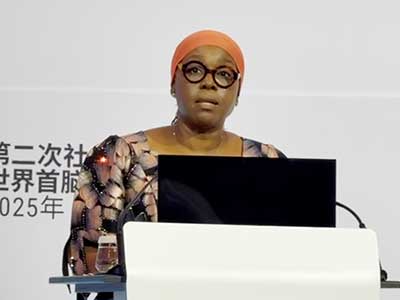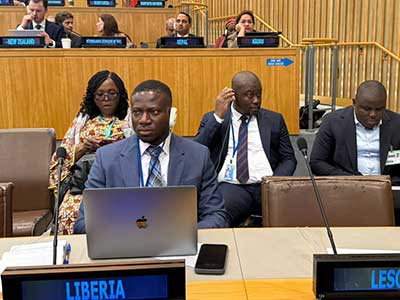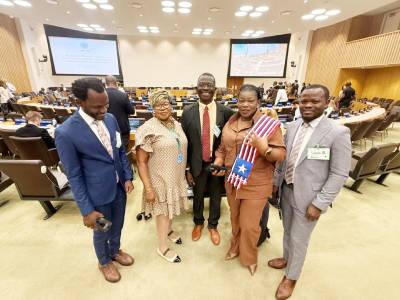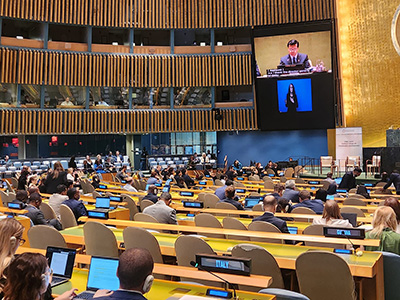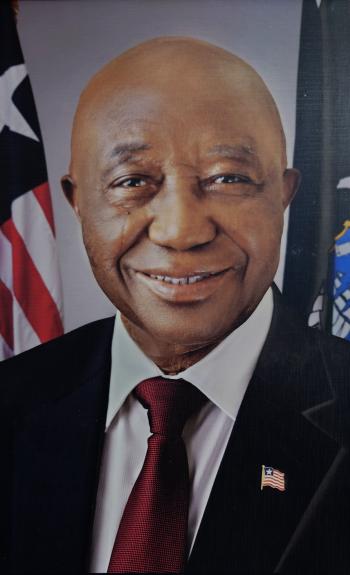My fellow Liberians: At home and abroad, there are growing concerns about the possible employment of designs to delay the timely conclusion of the 2017 Presidential Elections.
A delay in the conclusion of these elections within the timeframe envisaged by the Constitution has the unfortunate effect of spinning the nation out of constitutional orbit, and thereby ushering us outside the security of the Constitution. The mere possibility of risking ourselves outside the guaranteed protection of the Constitution ought to command our collective rebuke and loud condemnation insofar as it seeks to undermine our peace and democracy.
Article 50 of the Liberian Constitution provides in part that “The President shall be elected by universal adult suffrage of registered voters in the Republic and shall hold office for a term of six years commencing at noon on the third working Monday in January of the year immediately following the elections.” At least three months earlier, on the Second Tuesday in October of the election year, the Constitution provides for the conduct of election.
Article 50 establishes limits on the presidential term of office, and further defines the timely procedures for the smooth and orderly transfer of power to a successor. For purposes of clarity, according to Article 50, on January 22, 2018 - the 1st of January being a non-working Monday - at midday, President Ellen Johnson Sirleaf’s term of office would effectively expire. Prior to this expiry of her term, a successor ought to have been elected, and sworn into office at the same time that President Sirleaf’s term expires so that there is no presidential vacancy to scramble over, nor are we to be greeted by any insecurity of uncertainty about the leadership of the Liberian Government at the expiration of President Sirleaf’s term of office. This is the orderly, safe, peaceful and democratic ‘end-of-term’ transfer of presidential power which is designed and anticipated by the Liberian Constitution.
Of course the Constitution is about orderliness and security of individuals and the State, and it does provide for other safe and orderly transitions of power. These are contained in Articles 63 and 64, and must never be understood to contradict Article 50.
Article 63 and its multiple subsections address vacancies to the Offices of President and Vice President, on account of deaths, resignation, impeachment or the declaration of incapability to carry out the duties and functions of their respective offices - the guidelines and procedures for which declarations, the Constitution directs the Legislature to determine “no later than a year after the coming into force of the Constitution.” It is important to note that all such vacancies to which Article 63 refers are vacancies created while the president or vice president have actual terms to be carried out. They do not refer to vacancies created by the constitutional expiration of a term of office.
Article 64 cited in its entirety says
Whenever the Office of the President and of the Vice-President shall become vacant by reason of removal, death, resignation, inability or other disability of the President and the Vice-President, the Speaker of the House of Representatives shall be sworn in as Acting President until the holding of elections to fill the vacancies so created. Should the Speaker be legally incapable or otherwise unable to assume the office of Acting President, then the same shall devolve upon the President Pro Tempore of the Senate. In any further line of descent, the office shall devolve in order upon the Deputy Speaker and members of the Cabinet in the order of precedence as established by law. The Elections Commission shall within ninety days conduct elections for a new President and a new Vice President.
Quite clearly, Article 64 establishes the constitutional line of descent. Instructively, a constitutional line of descent is only good enough to fill a presidential or vice presidential vacancy insofar as a President is in-term, or to put it simply, the term of the president has not constitutionally expired. Constitutional line of succession were never intended nor can they be used to cure vacancies created by the expiration of the actual constitutional term of these elected offices. Only the conduct of elections, and the solemn and sacred inauguration of a president and vice president about three months thereafter can fill the vacancy created by the successful expiration of a constitutional term of presidential office.
We venture another step further in emphasizing that no constitutional power is assigned to anyone or any agency of the government to determine a constitutional successor to a president or vice president at the constitutional expiration of the term of office of an incumbent president or vice president, safe through the conduct of democratic elections and the free will and expressions of the registered voters of Liberia; nor is there a constitutional duty assigned to anyone or any agency, through an appeal to the provisions of Article 64, to extend presidential terms or undermine the constitutional limit of such terms.
To seek the extension of terms of elected offices either by legal maneuvers or political subterfuges is to effectively usher the nation outside the sanctuary of the Constitution and into illegal free fall. We ought not to ever forget that there are always certain to be consequences when we allow ourselves to fall outside the safety of the Constitution. We cannot therefore emphasize this point enough, where no unexpired term for a president or vice president exists, there cannot similarly exist a constitutional line of descent or succession to be invoked or applied.
May I also suggest that to spin ourselves out of constitutional orbit in the important national duty of the smooth, orderly and democratic transfer of presidential power through constitutionally unanticipated delays in the timely resolution of electoral disputes, is also to risk ushering ourselves outside of all of the constitutional safeguards to which all citizens, and our various agencies are constitutionally entitled. Especially in that respect, none of us can be really safe or our elected or unelected offices truly immune if we permit the Constitution to be maneuvered into irrelevance and our society declined into lawless free fall. We dangerously risk our peace, our democracy, our collective security, and our stability. This, again, is simply too high a price for our nation to bear at this time, or ever again!
No doubt, we are in a difficult moment. But it is also a defining moment.
All across the pages of the history of the world comes such defining moments in the lives of evolving democratic societies when it must rise to presenting choices between the narrower interests of self and the broader interests of country - the choice between the victory for self and the victory for country. At these defining moments, statesmanship is summoned over partisanship, and leadership tested in favor of posterity.
We face one of such important moments in our ongoing transformation when we must not necessarily act because it is easy or smart to do so, but we must now act because it is just and right - when we must not simply seek to be victorious against perceived political opponents, but win for our country.
As your representative to the United Nations, I could remind that the world is watching Liberia with growing interests and concerns. And this is true. But truthfully also, these elections and their timely constitutional conclusions are not necessarily about the interests and concerns of the international community. Disappointed as the United Nations, the African Union, ECOWAS, the Mano River Union and all of our development partners will be about our inability to see ourselves through these defining moments - because they know we have matured enough to be able to do so without outside interventions - this is really about us. It is about Liberia - where we have been, where we are today, and even more importantly, where we are headed.
And in that regard, quite simply, we cannot go back to political arrangements that are either extra-constitutional or outright unconstitutional. No Liberian is safer this way, nor can we pretend that we make our nation and its processes any better this way.
We must find it within ourselves to move on - to continue to build upon our collective gains, to deepen the culture of democratic governance, and to consolidate our peace. However we may feel about each other - however aggrieved we may be - we also owe this duty of statesmanship to ourselves, to our children, and to our nation.
I appeal humbly to all of us to be returned to the faith and higher duties of our citizenships - the same faith by which we have traveled in peace especially over the last twelve years in rebuilding our nation together not because the journey has been easy but because it has been right. I urge us toward our duty to the country we so dearly love, the duty to keep it constitutionally safe and secure not because it is problem-free - no society is ever problem-free - but because we are free, even freer, to attend to its many problems in the constitutional safety and security we have together built, and of which we should continue to be proud to uphold in good faith.
A few days ago, I expressed confidence in the future of our country. Today, I am happy to do so again. Notwithstanding the difficulties of the moment, and the looming challenges for the next administration of the government, Liberia’s future is bright. For this confidence, I gladly place my faith in our people, in our inherent resilient character, and in the transformative work we have all done so far to now reposition our country to be better.
The truth also is that I do not hold this trust alone. The international community also believes in the brightness of Liberia’s future. They believe that what we have achieved together is not necessarily extraordinary, but it certainly is remarkable - not that we are in a perfect place, but that we are in a better place to continue to improve and be better.
It was this continued belief in Liberia’s ability to improve which dominantly catalyzed the formal transfer of full security responsibilities from the United Nations Mission in Liberia to the Government of Liberia, and will witness the completion of the drawdown of UNMIL early next year - the same belief which stands Liberia out in the world as a glowing example of increasing post-conflict success, a continued commitment to peace building, and the respectful return to the family table of the world.
And the international community now watch us - hopeful and willing to continue to stand with us, to support us, and to assist us - continue on our journey of post-conflict success, democratic governance and transformation. Together with the various sectors of our society and development partners, a peace building plan has been developed laying out the full commitments of our continued partnership with the international community toward the further consolidation of our peace.
I know that too many Liberians now look to the future with hope rather than with fear. And because we have become more hopeful in building the kind of Liberia that we know is possible, my faith is strong that we will succeed. We will conclude the 2017 Presidential and General Elections within the timeframe of the Constitution. We will again witness, and the world will come to see Liberia leap forward in the historic, orderly and smooth transfer of political power from one living President to an elected successor. And we will further consolidate our peace and deepen the culture of democratic governance in our country.
Let there be no doubt that Liberians intend to continue to progress in peace, security and stability. Let there be no doubt that we cherish our democracy, and celebrate the sanctity of our Constitution. And as our national song inspires, “We will overall prevail.”
God bless you. God bless Liberia.
I thank you.

